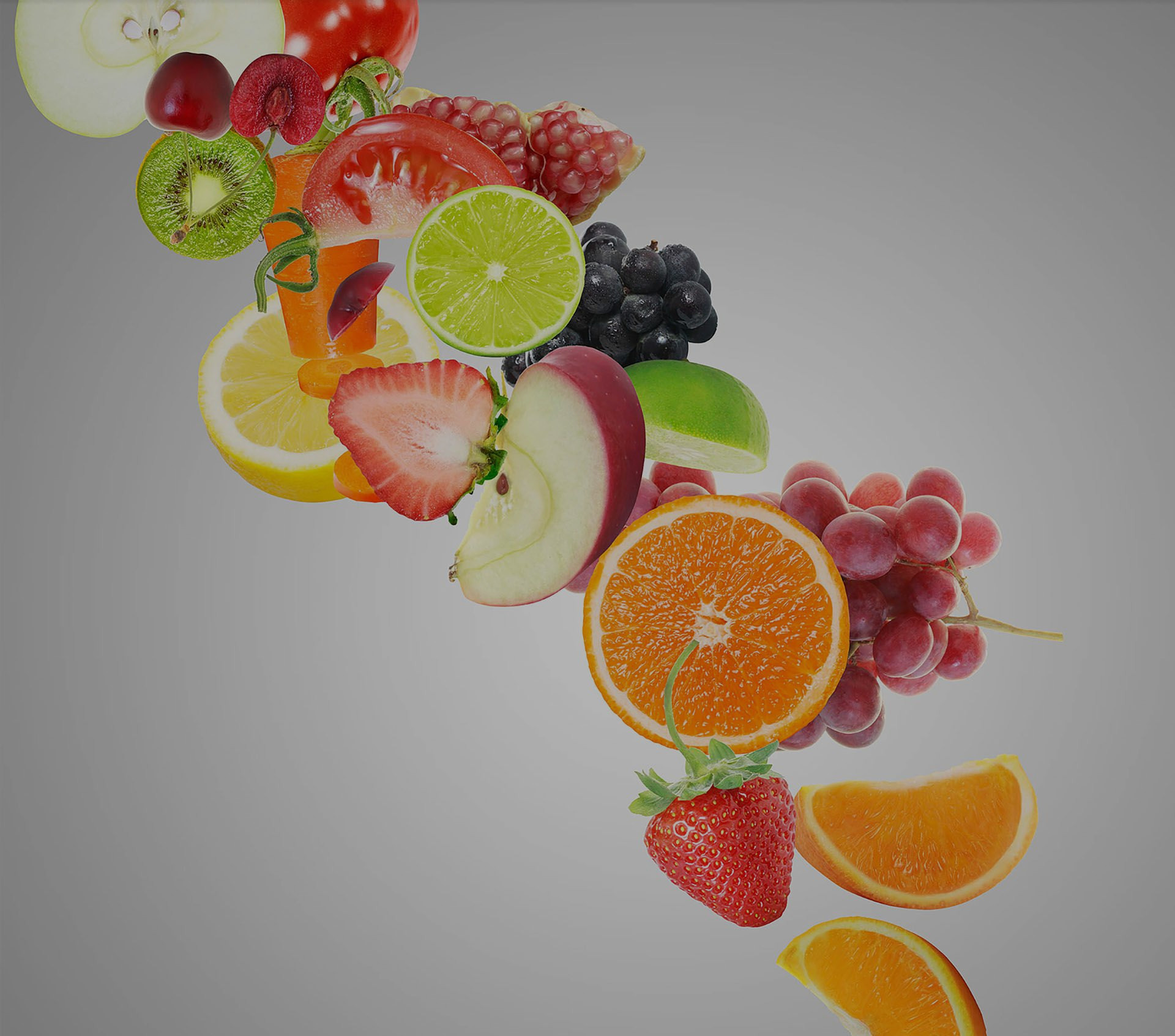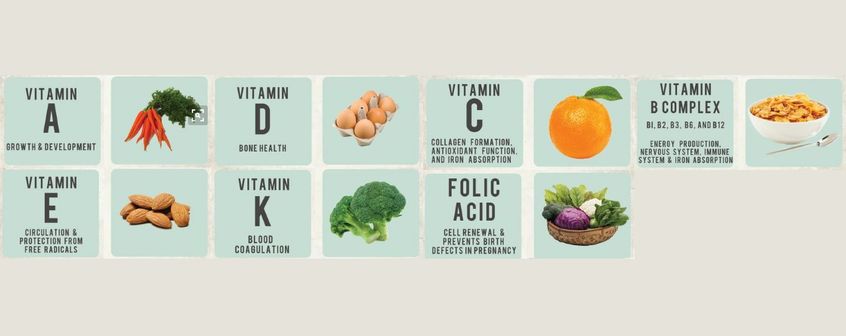Vitamins and minerals are found in food used in the daily diet. They are involved in metabolic processes, provide better immunity, formation of blood and cell membranes, activity of heart muscle, brain development. Together with a number of enzymes, vitamins and minerals ensure proper functioning of the body.
If for some reason there is a deficit of micronutrients, intake of supplements to meet the body's needs is required.
Vitamins
There are the liposoluble and hydrosoluble vitamins. Liposoluble - A, D, E and K, dissolve in fat and can be deposited in the body. Hydrosoluble - vitamin C and B complex (vitamins B6, B12, niacin, riboflavin, folate), dissolve in water and cannot be deposited in the body. A varied diet is the best way to provide the body all the necessary vitamins and minerals. If the daily diet includes a variety of foods, whole grains, fresh fruits and vegetables, dairy products, nuts, grains, eggs, fish, meat, then you probably meet all the needs of the organism in vitamins and minerals.
Vitamin C - an important antioxidant, strengthens the immune system, taken with products of iron, so that the iron (Fe) is better absorbed from food. It is located in the rosehips, peppers, cabbage, citrus fruits.
Vitamin B1 (thiamine) - is very important for the nervous system, strengthening the nervous system, helping the assimilation of sugars. It is present in the black bread, milk, vegetables, potatoes, meat, legumes, eggs, cheese, fish, poultry meat, prunes, chestnuts.
Vitamin B2 (riboflavin) - participates in the metabolism of protein, gives energy to cells and promotes growth. It is present in brewer's yeast, milk and dairy products, black bread, fish, green vegetables, eggs.
Vitamin B3 (niacin) - protects skin, energy metabolism, ensures the production of free fatty acids. It is present in nuts, spinach, chard, black bread, meat, fish, poultry meat, peanuts.
Vitamin B6 (pyridoxine) - protein metabolism, stimulates the production of hemoglobin. It is present in bread, milk, eggs, vegetables, nuts, meat, fish, poultry meat.
Vitamin B12 - protects the liver and nerve cells, building red blood cells, the nervous system. It is present in fish, shellfish, milk, liver, eggs.
Folic acid B9 - production of red blood cells, growth, metabolism. It is present in the liver, raw green vegetables, legumes, eggs and milk.
Vitamin A - protects the eyesight, skin against acne, immunity. It is contained in the margarine, butter, milk, liver, carrots, egg yolk.
Vitamin D - the metabolism of calcium and phosphorus in the bones. It is activated by the sun. Contained in margarine, fish oil, sardines, egg yolk.
Vitamin E - one of the strongest natural antioxidants, protecting cells from free radicals present in nuts, eggs, vegetable oil, hazelnuts, almonds.
Vitamin K - participates in blood coagulation, plays an important role in blood clotting. It is present in green vegetables, cabbage, spinach, sprouts.
The deficit of certain vitamins can cause various disorders: fatigue, disorder of the muscles and nervous system, impaired vision, dry skin, loss of fat etc.
Minerals
They are an integral part of many enzymes and play an essential role in the body. The most important are: calcium, phosphorus, iron, zinc, selenium, iodine, and others. The proper combination of foods can provide an adequate intake of minerals. If you are depressed, lethargic, feel malaise and fatigue take complex vitamins and minerals. They are divided into macro and micro elements. The macro-elements include sodium, potassium, calcium, magnezuijum, chlorine, phosphorus and sulfur, and trace elements include iron, zinc, copper, iodine, manganese, lead, chromium and others.
Calcium (Ca) - is used in building bones and teeth. The lack of calcium can lead to osteopenia and osteoporosis. It is found in leafy vegetables, parsley, figs, whole grains, fermented milk products and red meat.
Sodium (Na) - is one of the major extracellular ions and it is very important in maintaining the intracellular fluid required for the creation of hydrochloric acid in the stomach, it maintains osmotic pressure. It is mainly present in the form of salt (sodium chloride), and it is available in almost all kinds of food, especially animal products (products of the sea, milk, cheese, eggs). Recommended daily intake is from 2 to 5g of sodium. The potassium salt contains less sodium, water does not bind to the tissue and is recommended with swellings, hypertension and heart diseases.
Potassium (K) - parallel to sodium is a major among intracellular ions in the extracellular fluid. It participates in maintaining acid-base balance and osmotic pressure and plays an important role in muscle contraction and implementation of nerve impulses. It is located in a non-fat meat, cereals, vegetables, pulses, legumes, fruits (especially dried) - peach, walnut, banana, fruit juices.
Magnesium (Mg) - plays a role in many metabolic processes, it is present in bones, muscles and soft tissues. It is contained in the ingredients of plant origin, especially green leafy vegetables, and also in cereals, rice, almonds, beans, apricots, bananas, beans, peppers, cucumbers.
Iron (Fe) - is a part of hemoglobin, myoglobin, enzymes breathing (cytochrome). It exists in two forms: hem and non-heme iron. Heme iron is found in red meat, offal and fish, while the non-heme iron is found in plant origin food, milk and dairy products. The absorption of iron is enabled by the presence of vitamin C. Food of plant origin rich in iron are: green leafy vegetables, legumes, nuts, red and sullen fruits and vegetables (blueberries, blackberries, cherries, beets, red cabbage). Iron deficiency leads to anemia of iron.
Iodine (I) - mineral whose concentration in food ingredients depends on the presence of iodine in soil and water. Food items rich in iodine are seaweed, fish, seafood and eggs. Kitchen iodized salt is the best nutritional source of iodine. Iodine deficiency can lead to goiter.
Zinc (Zn) - present in skeletal muscles and bones. It is necessary for growth and development. Important sources of zinc are meat (horse meat), fish, liver, eggs, legumes, whole grains, beans, spinach, peas, green beans.


